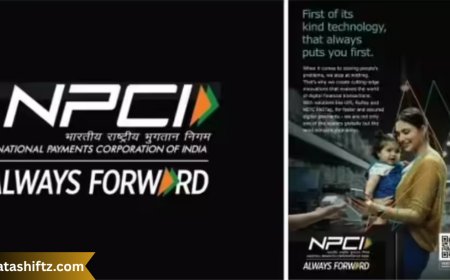Indian Defence Attaché: Strengthening Strategic Military Ties Worldwide

Introduction
India’s emergence as a regional and global power is closely tied to its military diplomacy, and at the heart of this effort lies a critical but often underrepresented figure—the Indian Defence Attaché (DA). Defence Attachés are senior military officers appointed to Indian embassies or high commissions abroad. Their roles transcend ceremonial duties, contributing to national security, international military cooperation, defence procurement, and diplomacy. This article explores the role, importance, structure, and evolving responsibilities of Indian Defence Attachés.
Who is an Indian Defence Attaché?
Definition and Role
An Indian Defence Attaché is a commissioned officer—usually of the rank of Brigadier, Commodore, or Air Commodore and above—from one of the three services: Indian Army, Navy, or Air Force. These officers serve in embassies across strategic partner nations and global power centers. Their principal role is to represent the Indian military establishment and liaise with the host country’s armed forces and defence ministries.
They serve as a crucial bridge between the Indian government and the defence apparatus of the host nation. The scope of their work has expanded in recent years to include:
-
Defence cooperation agreements
-
Joint training programs
-
Intelligence sharing (non-operational)
-
Technology transfers and procurement
-
Crisis response coordination
Strategic Significance of Defence Attachés
Expanding India’s Military Footprint
India currently maintains over 40 Defence Attaché posts around the globe. These positions are especially concentrated in regions of strategic interest such as:
-
Southeast Asia (Vietnam, Singapore, Indonesia)
-
Middle East (UAE, Israel, Saudi Arabia)
-
Africa (South Africa, Kenya, Nigeria)
-
Major powers (USA, Russia, UK, France)
-
Multilateral organizations (UN Missions)
This strategic deployment helps India exert influence, build partnerships, and counter threats like terrorism, piracy, and regional instability. Defence Attachés also assist in securing India's defence interests in peacekeeping missions and maritime security.
Soft Power and Strategic Diplomacy
Apart from hard military coordination, Defence Attachés also play a vital role in:
-
Participating in military parades and national events
-
Promoting indigenous defence exports such as HAL Tejas, BrahMos missiles, and naval platforms
-
Representing India in multinational defence seminars, air shows, and military expos
-
Supporting the Indian diaspora in defence-related issues
Roles, Responsibilities, and Career Path
Key Responsibilities of an Indian Defence Attaché
Below is a comprehensive list of core responsibilities:
-
Military Liaison: Coordinate interactions with the host country’s armed forces and defence ministry.
-
Defence Procurement & Offset Agreements: Participate in evaluating potential technology and procurement opportunities.
-
Intelligence Assessment: Provide strategic insights based on the host country's military posture.
-
Military Diplomacy: Promote bilateral/multilateral military cooperation.
-
Reporting: Provide regular and classified reports to India’s Ministry of Defence and External Affairs.
-
Disaster & Conflict Liaison: Coordinate evacuations and military logistics during emergencies.
Career Path and Appointment Process
Becoming a Defence Attaché is both prestigious and demanding. Officers are selected through a stringent process involving:
-
Nomination by their respective service HQ
-
Clearance by the Ministry of External Affairs (MEA) and Prime Minister’s Office (PMO)
-
Language training (if applicable) and diplomatic protocol training
-
Approval of credentials by the host country
Tenure is typically 3 years, which may be extended in exceptional strategic postings.
Indian Defence Attachés by Country and Service Representation
| Country | Branch Representation | Key Strategic Focus |
|---|---|---|
| United States | Army, Navy, Air Force | Defence tech transfer, Indo-Pacific strategy |
| Russia | Army, Navy | Legacy weapons systems, joint development |
| France | Navy, Air Force | Rafale program, Indo-European ties |
| Israel | Army | Cyber defence, UAVs, joint R&D |
| Japan | Navy, Air Force | Maritime cooperation, QUAD dialogue |
| Australia | Navy | Indo-Pacific naval drills |
| United Kingdom | Army, Navy | Historical ties, joint exercises |
| Vietnam | Navy | South China Sea strategic balance |
| UAE | Army | Energy corridor defence, diaspora security |
| South Africa | Army | Africa outreach, UN peacekeeping coordination |
Key Contributions of Indian Defence Attachés
-
???????? Washington D.C.: Facilitated the 2+2 dialogue and defence technology initiative.
-
???????? Moscow: Coordinated S-400 Triumf missile system delivery and training.
-
???????? Tel Aviv: Spearheaded cooperation in anti-drone systems and border surveillance.
-
???????? Tokyo: Strengthened maritime domain awareness through joint naval exercises.
-
???????? Paris: Negotiated logistics support agreement and HAL-Rafale manufacturing links.
-
???????? Pretoria: Enabled coordinated operations for UN peacekeeping in Africa.
-
???????? Singapore: Oversaw SIMBEX naval exercises and army-to-army exchange programs.
India’s Defence Diplomacy: The Road Ahead
Challenges and Opportunities
Despite the significant contributions of Defence Attachés, they face several challenges:
-
Resource constraints at embassies for complex operations
-
Security risks in unstable regions like Africa and the Middle East
-
Geopolitical shifts, requiring continuous adaptation
-
Inter-agency coordination delays between Defence, MEA, and PMO
However, these can be counterbalanced by:
-
Enhancing training modules for attachés
-
Introducing AI and data analysis tools for intelligence support
-
Increasing Defence Attaché postings to Latin America and Central Asia
-
Deepening defence industrial outreach to promote Make in India initiatives
Conclusion
The Indian Defence Attaché is no longer just a ceremonial military diplomat. In the modern geopolitical arena, they serve as force multipliers—enabling India to assert its defence interests, deepen bilateral ties, secure technology flows, and project regional stability. Their contribution is vital to India’s growing influence in global security architecture.
As India continues to rise on the world stage, expanding and strengthening its Defence Attaché network will be crucial to realizing its strategic vision for a secure, multipolar world.





























